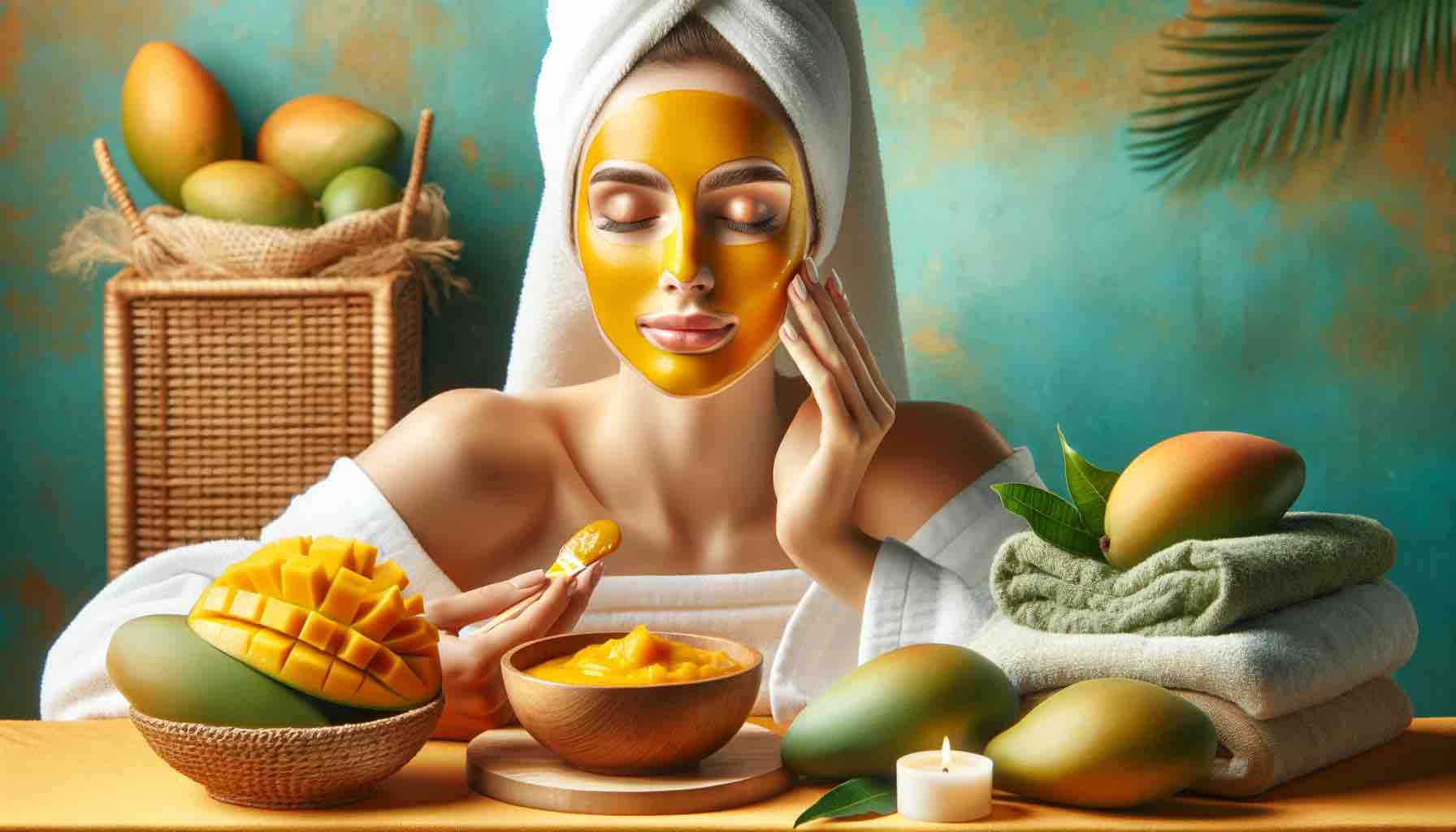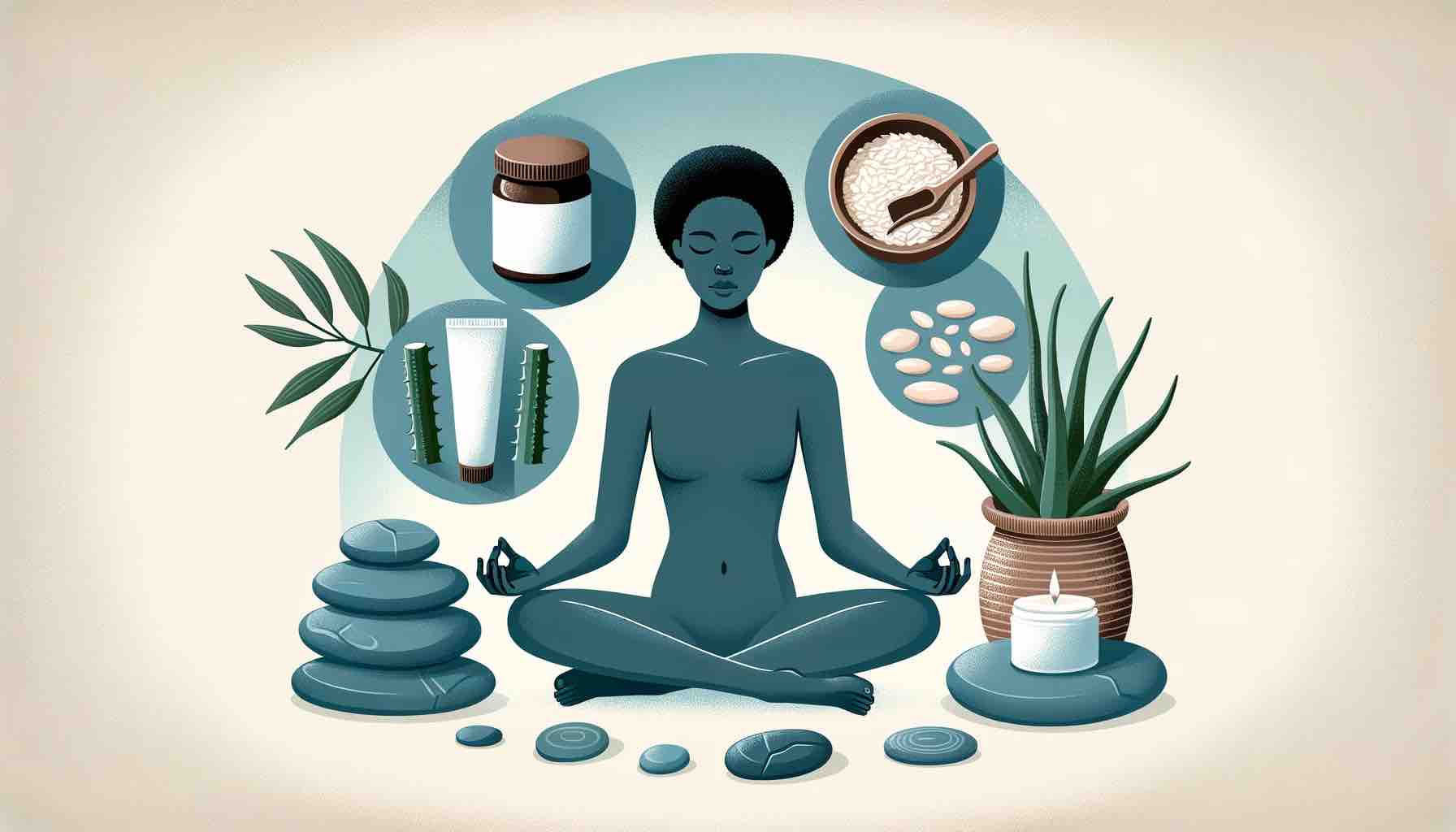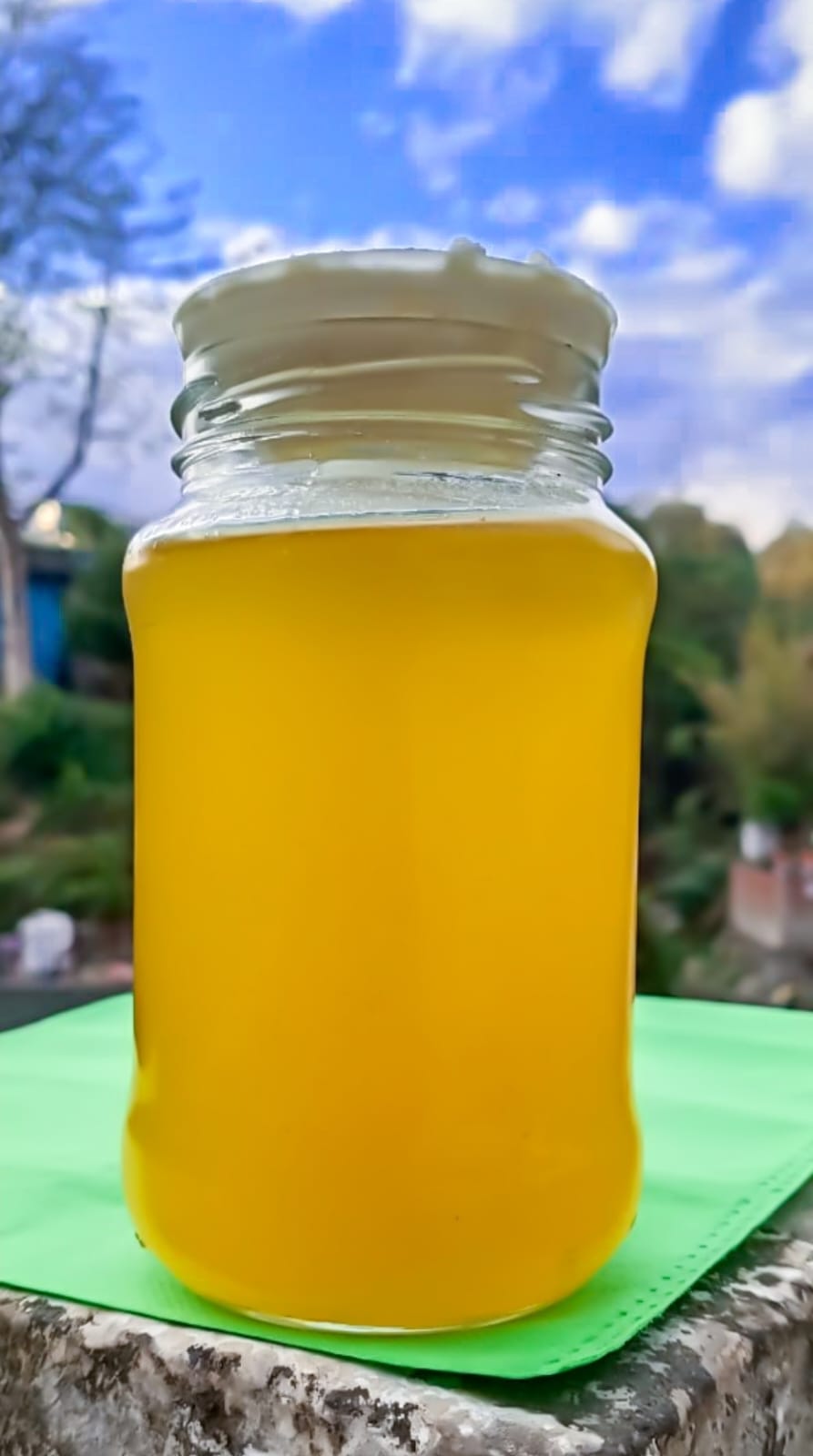
Unlock the Secret to Radiant Skin: The Surprising Benefits of Mango
Introduction
Mangoes, often hailed as the “king of fruits,” are a global favorite not only for their irresistible taste but also for their myriad of skin health benefits. This delectable fruit, which symbolizes the arrival of summer in many cultures, holds secrets to a radiant complexion and healthy skin. In this comprehensive exploration, we delve into the world of mangoes and their surprising role in skincare. From traditional uses in ancient remedies to cutting-edge ingredients in modern beauty products, mangoes offer a natural solution to numerous skin concerns.
Section 1: Nutritional Profile of Mango and Its Impact on Skin
The nutritional value of mangoes extends far beyond their delightful flavor. They are a treasure trove of vitamins and minerals, each playing a critical role in maintaining and enhancing skin health:
- Vitamin A: Often associated with retinol, vitamin A is a powerhouse for skin rejuvenation. It boosts collagen production, which helps reduce fine lines, and lightens dark patches, giving your skin a more youthful and even appearance.
- Vitamin C: Known for its antioxidant properties, vitamin C is crucial in protecting the skin from environmental stressors, such as pollution and UV rays. It aids in skin repair and regeneration, reducing the impact of sun damage and enhancing the skin’s overall radiance.
- Vitamin E: This vitamin is celebrated for its moisturizing properties. It helps maintain the skin’s protective barrier, keeping it hydrated and supple, and is especially beneficial for dry skin types.
- Magnesium: With anti-inflammatory properties, magnesium is beneficial for those struggling with acne or oily skin. It helps reduce redness and calm skin irritations.
Section 2: Top Benefits of Mango for Skin
Unveiling the skin-centric benefits of mangoes:
- Sun Damage Mitigation: Mangoes are armed with antioxidants that mitigate the damage caused by the sun’s harsh rays. They help prevent the oxidative stress on skin cells that can lead to sunburns and, over time, to more serious conditions like skin cancer.
- Collagen Boosting for Youthful Skin: The vitamin C in mangoes is not just about brightening the skin; it’s also crucial for collagen synthesis. Collagen is the scaffolding of the skin, ensuring its firmness and elasticity. By boosting collagen, mangoes help keep the skin robust and youthful.
- Natural Skin Exfoliation: The AHAs found in mangoes are nature’s answer to chemical exfoliants. They gently dissolve dead skin cells, making way for newer, healthier skin layers, and imparting a natural glow.
- Preventing and Treating Acne: The natural astringent properties of mangoes, combined with their beta-carotene content, make them effective in clearing pores and reducing acne. They help maintain clear, blemish-free skin.
- Evening Out Skin Tone: Mangoes are a natural remedy for hyperpigmentation and uneven skin tone. Their rich vitamin content aids in lightening dark spots and balancing overall skin complexion.
- Anti-Aging Properties: The combination of vitamins A and E in mangoes shields the skin from external aging factors. They help protect the skin from premature aging signs like wrinkles and fine lines.
- Relieving Inflammation: With anti-inflammatory properties, mangoes provide relief from skin conditions like acne, rosacea, and eczema. They help calm the skin and reduce redness and irritation.
- Hydrating the Skin: Mangoes’ natural phosphorus and vitamin E content make them excellent for deep skin hydration. They nourish and moisturize the skin, leaving it soft and hydrated.
Section 3: How to Use Mango in Your Skincare Routine
Incorporating mango into your skincare routine can be a delightful and beneficial experience:
- Mango Face Mask: A simple, yet effective, way to utilize mangoes is by applying their pulp as a face mask. Rich in vitamins and AHAs, the pulp works wonders in exfoliating, brightening, and hydrating the skin.
- Mango Peel Powder: Don’t discard those peels! Dried and powdered mango peels can be mixed with other natural ingredients like rose water to make a potent face mask for evening out skin tone and reducing dark spots.
- Mango Butter: Extracted from the seeds, mango butter is a luxurious, deeply moisturizing ingredient that can be used on its own or incorporated into homemade skincare products.
- Mango Juice: Fresh mango juice can be used as a facial cleanser or toner. Its natural astringent properties help cleanse the skin, tighten pores, and give a refreshing glow. It’s also effective when included in DIY face masks for added hydration and nourishment.
Section 4: Mango in Commercial Skincare Products
Mango extracts and butter are increasingly popular in commercial skincare products, valued for their hydrating, nourishing, and rejuvenating properties. From face creams to serums, mango ingredients are making their mark in the beauty industry.
Conclusion
Mangoes, with their delightful taste and extraordinary skin benefits, are a natural boon for anyone seeking healthy, radiant skin. Whether consumed or applied topically, this fruit can have a transformative effect on your skin. Embrace the power of mangoes in your skincare routine and witness the remarkable changes they bring to your skin’s health and appearance.
10 FAQs About Mango and Skin Care
- How does mango benefit the skin? Mango is packed with vitamins A, C, and E, along with alpha-hydroxy acids, making it great for sun damage repair, collagen production, natural exfoliation, acne prevention, skin tone improvement, anti-aging, deep hydration, and reducing inflammation.
- Can mango pulp be used directly on the skin? Yes, applying mango pulp directly to the skin can act as a natural face mask. It helps in cleansing pores, slowing aging signs, and boosting collagen production, resulting in a radiant glow.
- Is mango good for acne-prone skin? Mangoes are beneficial for acne-prone skin due to their beta-carotene content and natural astringent properties. They help clear pores and reduce acne formation.
- Can mangoes help with anti-aging? Mangoes, rich in vitamins A and E, protect the skin from environmental factors like sun exposure and pollution, thus preventing premature aging and maintaining skin elasticity.
- How can mangoes improve skin hydration? Mangoes contain phosphorus and vitamin E, which deeply hydrate and nourish the skin. Mango butter, in particular, is an effective moisturizer for dry and flaky skin.
- What are the benefits of mango juice for skin? Mango juice, used as a facial cleanser or toner, can cleanse the skin, tighten pores, and refresh the skin due to its astringent properties. It’s also great in DIY face masks for added nourishment.
- Can mangoes treat skin inflammation? Mangoes contain mangiferin, an antioxidant that relieves inflammation caused by acne and other skin conditions, making them suitable for sensitive and inflamed skin types.
- How does mango help in exfoliating the skin? Mango pulp is rich in alpha-hydroxy acids (AHAs), which are natural exfoliants. AHAs help remove dead skin cells, revealing a fresh, rejuvenated layer of skin.
- Are there any precautions to consider when using mango on the skin? People with sensitive skin or mango allergies should do a patch test before applying mango products. Also, it’s important to use mangoes in moderation to avoid any adverse reactions.
- How can mango be incorporated into a regular skincare routine? Mango can be used in various forms like fresh pulp masks, mango peel powder masks, mango butter, and mango juice in DIY skincare recipes. It can be tailored to suit different skin types and concerns.
Blog Tags
mango and skin health, natural skincare, mango benefits for skin, anti-aging with mango, acne treatment with mango, skin hydration, mango face masks, DIY mango skincare, mango in beauty products, tropical skincare













